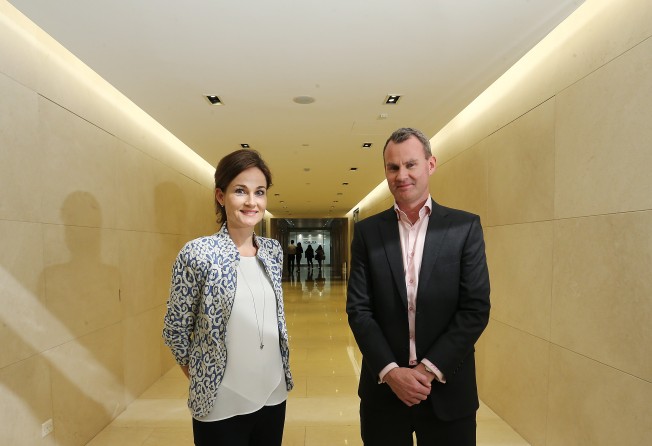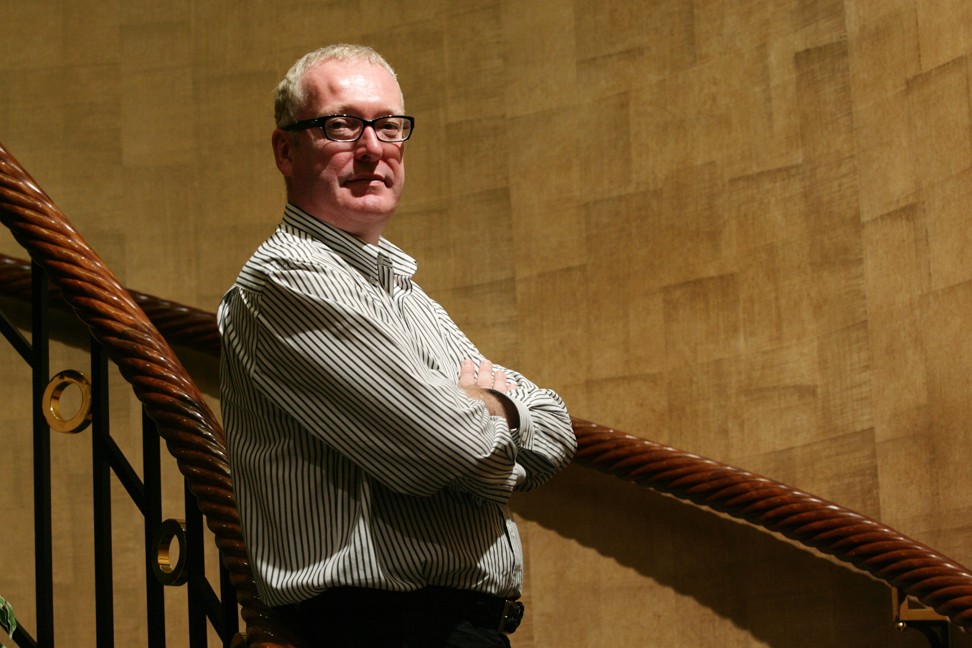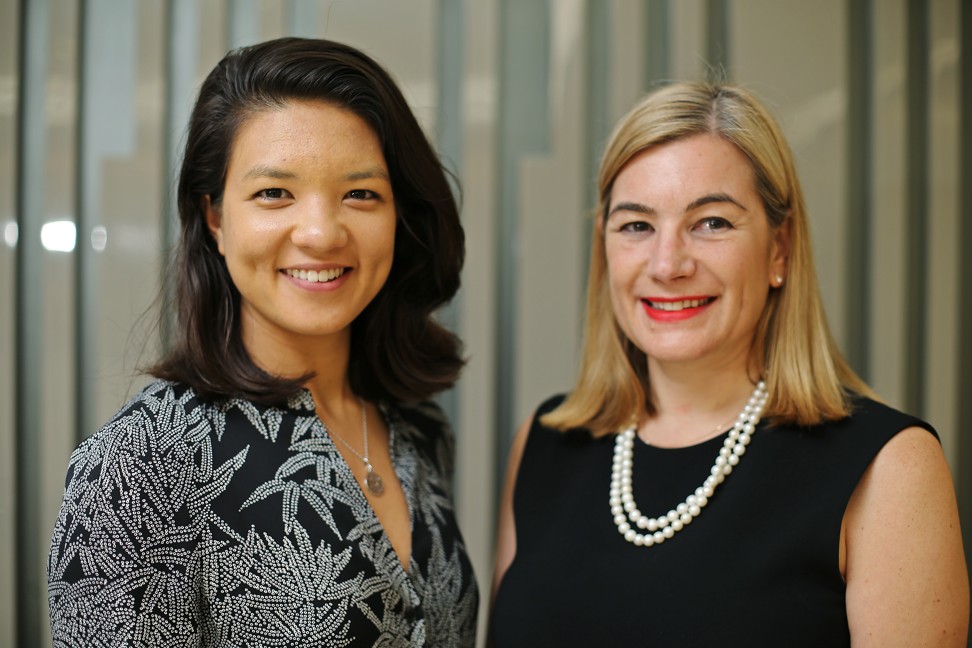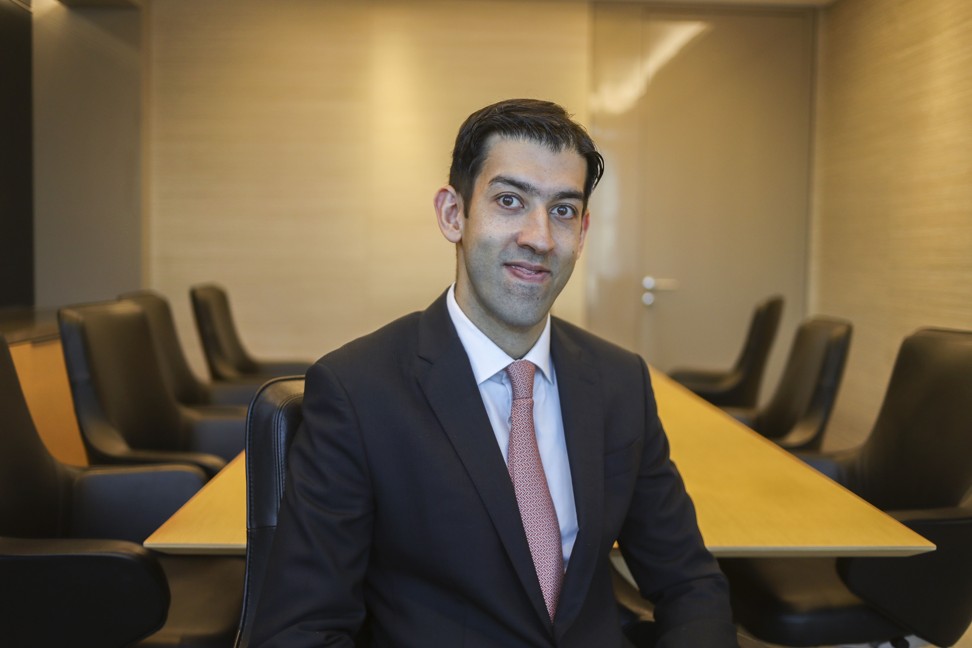It’s a match – senior managers at Hong Kong banks ‘speed date’ to find volunteering opportunities
Skills-based secondments an opportunity to lend a helping hand – and learn on the job

Speed dating is not something you would expect three senior Hong Kong-based managers at large international investment banks to fit into their work schedule. But to find a suitable charity or non-governmental organisation for them to volunteer their time and skills with, it was worth the effort, they said.
“On the speed dating night, we each spent around 10 minutes with three to four NGOs, to exchange information on our interests and areas of expertise as well as what they are looking for,” William Cornelius, head of regional finance at investment bank CLSA, told the South China Morning Post.
“Some [dates] went really well and some did not go so well … it was up to us and the NGOs to follow up on our [mutual] interest. That was how I met [the NGO] Redress,” he said.
“It was a fascinating experience. I can apply what I learned at CLSA, [such as] dealing with things not in my comfort zone.”
Cornelius is a participant of the Hong Kong Community Connections programme for senior managers, a partnership between investment banks CLSA, Credit Suisse, Macquarie and Nomura, as well as asset manager State Street and accounting and consulting company PwC, set up in 2015.
About 191 participants from these companies have been paired with about 90 NGOs in the past three years, about 100 of these participants this year alone.
After taking a one-day training course offered by the Australian Institute of Company Directors last year, Cornelius became a board director for the first time. He joined the board of Hong Kong-based NGO Redress, which seeks to reduce garment waste and to foster a more sustainable fashion industry.
Redress has organised corporate drives to collect unwanted clothing and redistribute these to those in need. The charity also encourages the recycling of fabrics to produce other useful items, such as upholstery stuffing and construction materials.
“Hong Kong people, on average, send some 15,000 pieces of garments every hour to the landfill,” said Anneleise Smillie, the executive director at Redress. “The fashion industry is growing because of our desire for fast fashion. There is so much the industry can do to transform its operations, so that people can consume in a more sustainable way.”
By giving guidance on budgeting, monthly reporting and annual audits, Cornelius has helped Redress “further professionalise” and provided an “additional layer of governance and oversight”, said Smillie.
Skills-based volunteering involves helping NGOs approach issues or problems they face with a “business mentality” through one-off strategic reviews, or one-on-one mentoring. It could also take the form of lending of skills, such as legal, accounting, finance or information technology, or mentoring entrepreneurs to set up and grow an NGO.

Richard Welford, the chairman of Hong Kong-based CSR Asia, which helps companies create and monitor sustainability strategies, said more companies were supporting volunteering among senior staff members.
“A lot of businesses are seeing opportunities for their senior management to be involved in volunteering. For very senior managers, we are seeing a trend of micro-volunteering [due to the high opportunity costs of their time], such as one hour a week of mentoring a social enterprise,” he said.
“For high fliers who are expected to become senior managers, some are getting secondments at NGOs that could last for up to three months, often in a different country, to help create change at the NGOs and as part of the volunteers’ career development as a global manager.”
Credit Suisse is one such employer. According to its Asia-Pacific head of corporate citizenship, Liza Green, just over half of the Swiss bank’s more than 7,000 staff in the region participate in volunteering activities each year.
Around a third of such activities are skills-based, including support with fundraising, information technology, human resources, legal, strategic planning and marketing. The bank provides its staff with up to four days of charity leave for volunteer work.
Credit Suisse also runs the skills-based Global Citizens volunteering programme, where its staff can apply to participate in advertised assignments that help its partner education and microfinance NGOs in their offices in different parts of the world. If selected, the staff members can complete assignments lasting from one week to three months at partner organisations.

After undergoing a day of training provided by PwC under the Hong Kong Community Connections programme, Martine Vanasse, Credit Suisse’s head of Asia-Pacific banking compliance, became the board secretary of Solerico. It is a Hong Kong-based NGO founded this year by three university graduates in their 20s with solar power projects in the city, Nepal and Papua New Guinea.
Vanasse helped the nascent organisation recruit board members, compile a governance manual and prepare an information pack for attracting donors.
Caitlin Spencer, the chief operating officer at Solerico, said it has raised funds to help Nepalese cash crop farmers mitigate the effects of extreme rainfall variability caused by climate change.
The funds are used to make 30 per cent down payments for solar-powered water pumps, with the remaining 70 per cent financed by loans from a local microfinance company, which the farmers have to repay before they can fully own the pumps.
“We met a farmer in his early 70s, who [can only] rent a water pump for one or two months in a year at very high costs, and had to rely on unpredictable monsoon rain for the rest of the year,” she said.

Another participant of the Hong Kong Community Connections programme, Aleem Jivraj, the chief administrative officer of Nomura’s global emerging markets business and global markets in Asia excluding Japan, joined the board of EMpower. It is a global philanthropy foundation that uses a private equity-like model to support and fund more than 100 charities focusing on improving at-risk young people’s lives in 15 emerging market countries.
When asked about his motivation, Jivraj said that besides his family’s involvement with volunteering since his childhood, being involved with an organisation with a large number of grantee partners has broadened his exposure to the challenges people face in Asia, and the best practices that can help to improve their lives.
His involvement with EMpower has also helped to give him more perspective at work: “I have been fortunate to visit a number of EMpower’s grantee partners in India and Vietnam, and these visits have reminded me how lucky people in our industry are, and helped me to be more balanced when making decisions or leading projects in the office.”